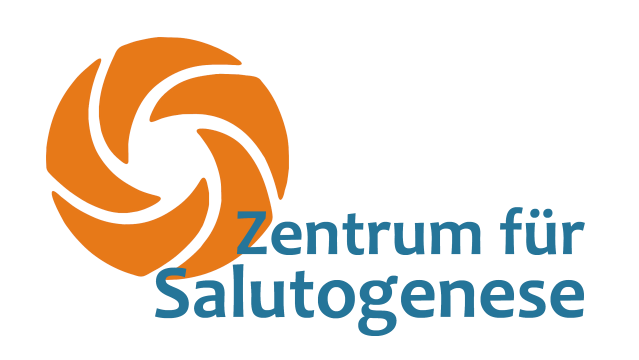Basic training in salutogenic communication
Goals
The training equips participants to communicatively stimulate healthy self-regulation in therapeutic, counseling, and educational settings. Reflective motivation plays a key role in this process.
In the basic training, participants learn to consistently apply a salutogenic orientation in their everyday and professional communication and cooperation – to implement a focus on attractive coherence goals and helpful resources. They should be able to communicate in their field of activity in such a salutogenic and cooperative way that it promotes healthy development. Collected pathogenetic (disease-oriented) knowledge should be integrated into this process.
Contents
In addition to the topics mentioned in the curriculum (su), well-known fundamental aspects of communication are reflected upon, such as dialogic, co-creative, informative, sender-receiver model and circular communication, resonance, feedback rules, listening, transmission-countertransmission, etc.
Salutogenic communication is based on a systemic and developmental psychology.
Structure of the training
To get a taste of the method and meet the people involved, we offer an introductory webinar. It lasts three hours and includes two short presentations, interactive exercises, Q&A sessions, and group discussions. (Register here)
After this introductory webinar, you can decide whether to participate in the basic training to become a Salutogenic Communicator. This includes four 90-minute theory webinars and three in-person seminars (each held on a weekend) and concludes with certification. For professional application, we recommend the SalKom® Consultant qualification, which additionally includes two live supervision sessions, three written and oral case supervisions, and a final project.
Basic training in salutogenic communication
After the introductory webinar, you can opt for the basic training, which comprises four theory webinars and three in-person seminars. For further application in a professional setting, we recommend Module 4.
to become a SalKom® consultant.
Head: Dr. med. Theodor Dierk Petzold
Diploma:
CERTIFIED SALUTOGENIC COMMUNICATOR
Cost: €1,290.00*
SALKOM® CONSULTANT
*additional €500.00
The fee for the entire basic training course is €1,750.00 when booked in full.
To register
Schedule overview
Training content / curriculum
for basic training in saltutogenic communication
WEBINAR
Theory Part I to IV
Theory Part 1
Communication in different dimensions of life
Webinar 90 minutes
Theory Part 2
Three basic motivations and their neuro-humoral attitudes
Webinar 90 minutes
Theory Part 1
Communicative self- and coherence regulation of humans
Webinar 90 minutes
Theory Part 2
Emotional competence and needs communication
Webinar 90 minutes
IN-PERSON EVENT
B1 MOTIVATION
Motivation
1. The importance of motivation for healthy self-regulation: How can I stimulate it? 2. Questions about approach, avoidance, and coherence goals 3. Questions about the needs behind emotions
4. Questions about attractive roles, purpose and intention, and power in collaborations
5. Questions about higher meaning and service
IN-PERSON EVENT
B2 Acting and Cooperating
Acting and cooperating
1. Agency, encouragement, empowerment, and resources in different situations 2. Trust and cooperation 3. Co-creative cooperation and dialogical communication – counseling as support in self-regulation 4. Cooperation and the victim triangle 5. Roles in collaborations, cultivating co-creativity
IN-PERSON EVENT
B3 Reflecting and Learning
Reflect and learn
1. How humans learn naturally – on the development of learning ability in learning levels. 2. Questions on the connection between intentionality and learning. 3. Communicative self-/coherence regulation as a learning cycle of living beings and a culture of learning. 4. Questions on reflecting on relationships and cooperation (including the power-victim triangle). 5. Learning from failure – ‘The art of the bounce-back toy’.
Additional qualification
for use in a professional setting as a SalKom® consultant
For professional use, we recommend the SalKom® consultant qualification, which additionally includes: two live supervisions, three written-oral case supervisions, and the final thesis.
IN-PERSON EVENT
Supervisions
and development weekend for application in a professional setting as a SalKom® consultant
During the development and supervision seminar, we learn from each other in consultations or therapeutic conversations, which are supervised by the group as a Salutogenic Reflecting Team (SRT) under the guidance of a supervisor.
The SVEW serves as an opportunity for life supervision for SalKom® consultants, coaches, and therapists, and for the annual stimulation and updating of their own salutogenic communication skills. Professional therapists can also attend these weekends as guests to experience salutogenic communication in practice. Clients are also welcome to receive a free SalKom® consultation in front of the group.
Secondly, the SVEW serves to further develop SalKom® by presenting new findings and facilitating the exchange of experiences. Annual participation in an SVEW is recommended for all SalKom® consultants.
To obtain the certificate of completion as a certified SalKom consultant, follow these steps:
- Telecommunication supervision of three written case reports.
- Written thesis followed by joint reflection.




